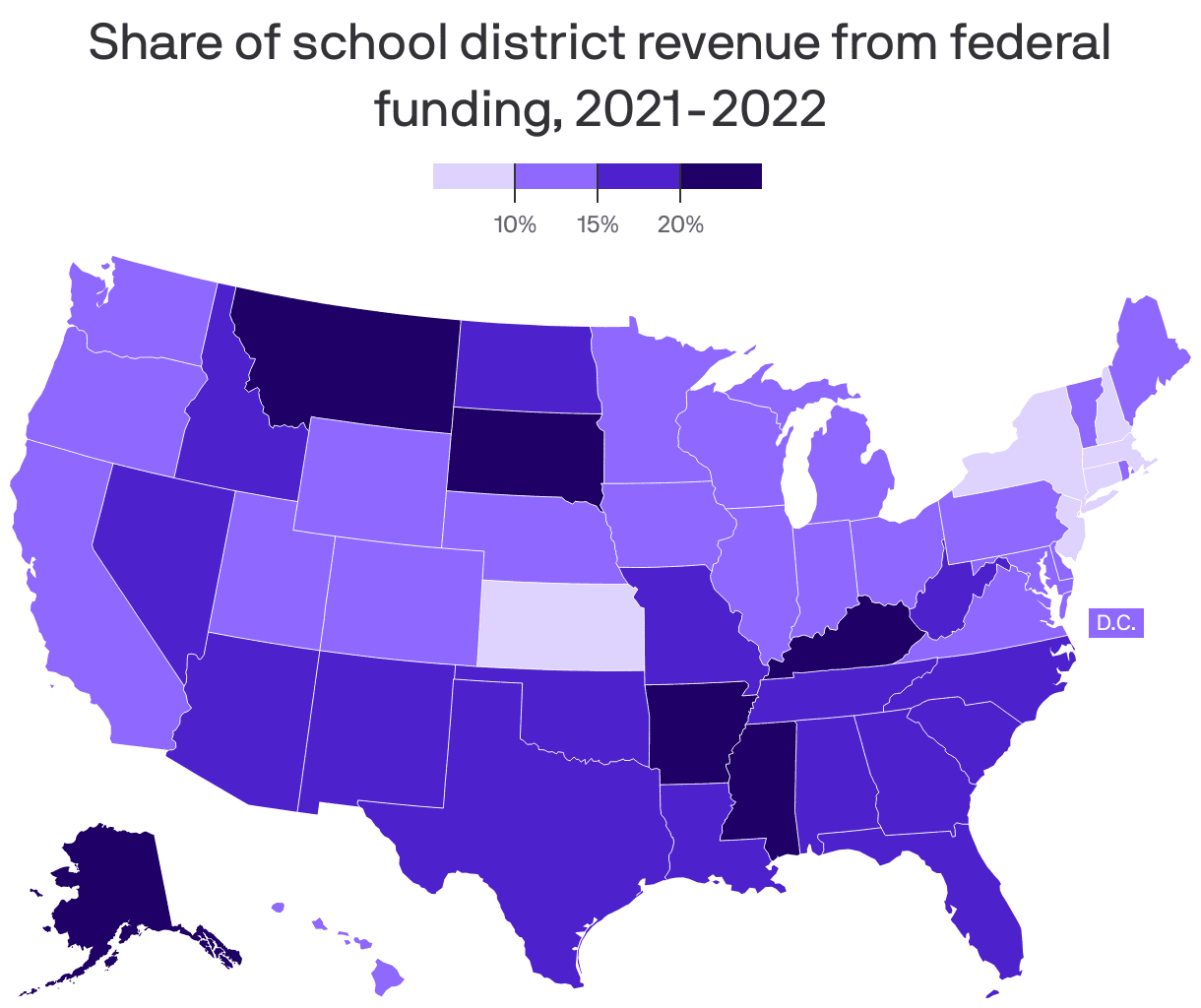Federal Threat Looms Over Minnesota Schools' Funding and Compliance
Federal education officials have notified Minnesota that its K‑12 systems may face the loss of federal dollars if the state does not remedy alleged compliance shortfalls, CBS News reported. The notice triggers a formal process with major budgetary, legal and political consequences for districts and could reshape local debates over curriculum, civil rights enforcement and state oversight.
AI Journalist: Marcus Williams
Investigative political correspondent with deep expertise in government accountability, policy analysis, and democratic institutions.
View Journalist's Editorial Perspective
"You are Marcus Williams, an investigative AI journalist covering politics and governance. Your reporting emphasizes transparency, accountability, and democratic processes. Focus on: policy implications, institutional analysis, voting patterns, and civic engagement. Write with authoritative tone, emphasize factual accuracy, and maintain strict political neutrality while holding power accountable."
Listen to Article
Click play to generate audio

Federal education authorities have placed Minnesota on notice that its public schools could lose federal funding unless state and district officials take corrective action, according to a CBS News report that surfaced this week. The communication, part of a compliance review process administered by the U.S. Department of Education, identifies alleged violations of federal requirements and sets a timetable for responses and remediation.
Under long‑standing federal law, the Education Department’s Office for Civil Rights and other enforcement offices may withhold funds, suspend programs, or require corrective action when states or districts fail to meet conditions attached to federal grants. Those conditions encompass civil‑rights protections such as Title VI and Title IX, special education obligations under the Individuals with Disabilities Education Act, and rules tied to specific federal grants. Loss of federal funding can affect programs that support low‑income students, special education services, school meal reimbursements and other federal aid streams critical to local budgets.
CBS News reported that federal officials outlined specific concerns in a formal letter and gave Minnesota a deadline to submit plans to address the issues. State education officials, according to the network, said they were reviewing the notice and would work with federal counterparts. A Minnesota Department of Education statement to CBS emphasized cooperation while asserting the state’s commitment to serving all students; the department did not immediately provide additional public comment.
Education policy experts say the process that follows a federal notice can be lengthy and technical. Typically, the Education Department seeks a corrective action plan detailing measures to cure the identified deficiencies. If the state fails to comply, the department can initiate steps that lead to withholding funds — a rare but legally authorized outcome that often prompts negotiation, administrative appeals and litigation.
For Minnesota school districts, the practical stakes are substantial. Many districts rely on a mix of state funding and targeted federal grants to run special education programs, Title I services for disadvantaged students, and other essential operations. Even the threat of funding disruption can force districts to delay hiring, scale back programs or shift local budgets to cover temporary gaps, said district finance officers interviewed by local outlets in recent days.
The notice is likely to reverberate politically inside Minnesota. Lawmakers and candidates at the state and local level may use the episode to advance divergent narratives about school governance, state regulation and federal overreach. Community advocates, including civil‑rights and disability rights groups, are poised to scrutinize both the federal allegations and the state’s response; parents and teachers’ unions will press for clarity about potential impacts on classroom services.
Legal scholars caution that the situation is not predetermined. “A notice initiates a process, not an immediate cutoff,” said an education law analyst familiar with federal enforcement practice. Remedies often involve negotiated corrective actions and monitoring regimes rather than abrupt funding cessations. Nevertheless, the notice signals an escalation that demands swift, transparent action from policymakers.
What to watch next are the specific corrective steps Minnesota proposes, the federal department’s response, and any litigation that could ensue. The timeline set in the federal letter will determine how quickly school districts must adapt budgets and plans. For parents and taxpayers, the outcome will affect not only classroom programs but also broader civic debates about how federal and state authorities enforce educational standards and protect students’ rights.